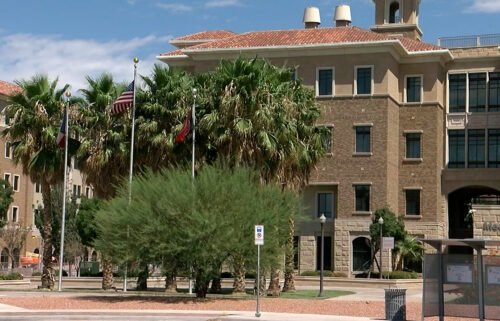A patient kept getting kicked off liver transplant waiting lists for alcohol abuse. But she wasn’t drinking, her bladder was making the alcohol

A woman insisted she needed a liver transplant. But doctors wouldn’t allow it, removing her from waiting lists and recommending treatment for alcohol addiction instead.
She denied, again and again, any problems with alcohol. Her urine ethanol levels, though, told a different story.
When the patient showed up on the University of Pittsburgh Medical Center’s liver transplant waiting list, the cycle was on the verge of repeating. Clinicians thought she had a drinking problem, and the patient denied it.
But these clinicians dug a little deeper. Test results came back showing ethanol in the patient’s urine, but they didn’t find any ethyl glucuronide or ethyl sulfate — the metabolites of ethanol.
Why is that significant? Well, if the woman had been drinking, those metabolites would have been present. But they weren’t.
Woman claims her body brews alcohol, has DUI charge dismissed
That was the first clue that something was up, said Dr. Kenichi Tamama, medical director of the UPMC Clinical Toxicology Laboratory.
So, Tamama went through the patient’s other lab results, noticing both yeast and very high sugar in her urine.
“Then I was wondering, is the yeast producing alcohol?” he questioned.
The answer, Tamama discovered, was yes.
He, and the team of doctors and clinicians, had discovered the first proven case of urinary auto-brewery syndrome. The team’s findings were published online Tuesday on Annals of Internal Medicine.
What is urinary auto-brewery syndrome?
Tamama broke it down like this.
Basically, the patient had diabetes — which she managed poorly, he said. That means her bladder had higher levels of sugar than most.
Everyone has yeast in their bladder, he continued. But her high levels of sugar interacted with the yeast, causing fermentation and the unusual ethanol levels.
You may have heard of gut fermentation syndrome, which is when the gastrointestinal tract causes the body to convert ingested carbs into alcohol.
This is not that.
For starters, urinary auto-brewery syndrome occurs in the bladder, rather than the gut. And while those with gut fermentation syndrome often experience intoxication, that’s not the case with Tamama’s patient.
The reason is the structure of the bladder, Tamama told CNN. The bladder doesn’t allow ethanol to pass through the bladder wall, so it’s not absorbed into the bloodstream. No absorption, no intoxication.
The gut works differently — allowing the ethanol to pass through, hence the drunkenness.
What the discovery means going forward
Clinicians tried to eliminate the yeast in her bladder, but proper management of her diabetes is also needed, Tamama said.
Tamama said it’s a significant discovery.
“Especially for the liver transplant clinics or alcohol abuse clinics, it’s important for them to recognize this rare condition, because they’re the ones that monitor alcohol abstinence,” he said. “And as you see in this case, the lab test results with urinary auto-brewery syndrome might be misinterpreted.”
Ultimately, this benefits the patient the most, Tamama said. She was both stigmatized and falsely labeled because of her condition, unable to get the transplant she needed. Now, she has answers.
Tamama works in the lab and doesn’t really see patients anymore, he told CNN. But he said he witnessed the positive difference their work made in this patient’s life, simply by doing an extra experiment.
And that, he said, is a great thing.




